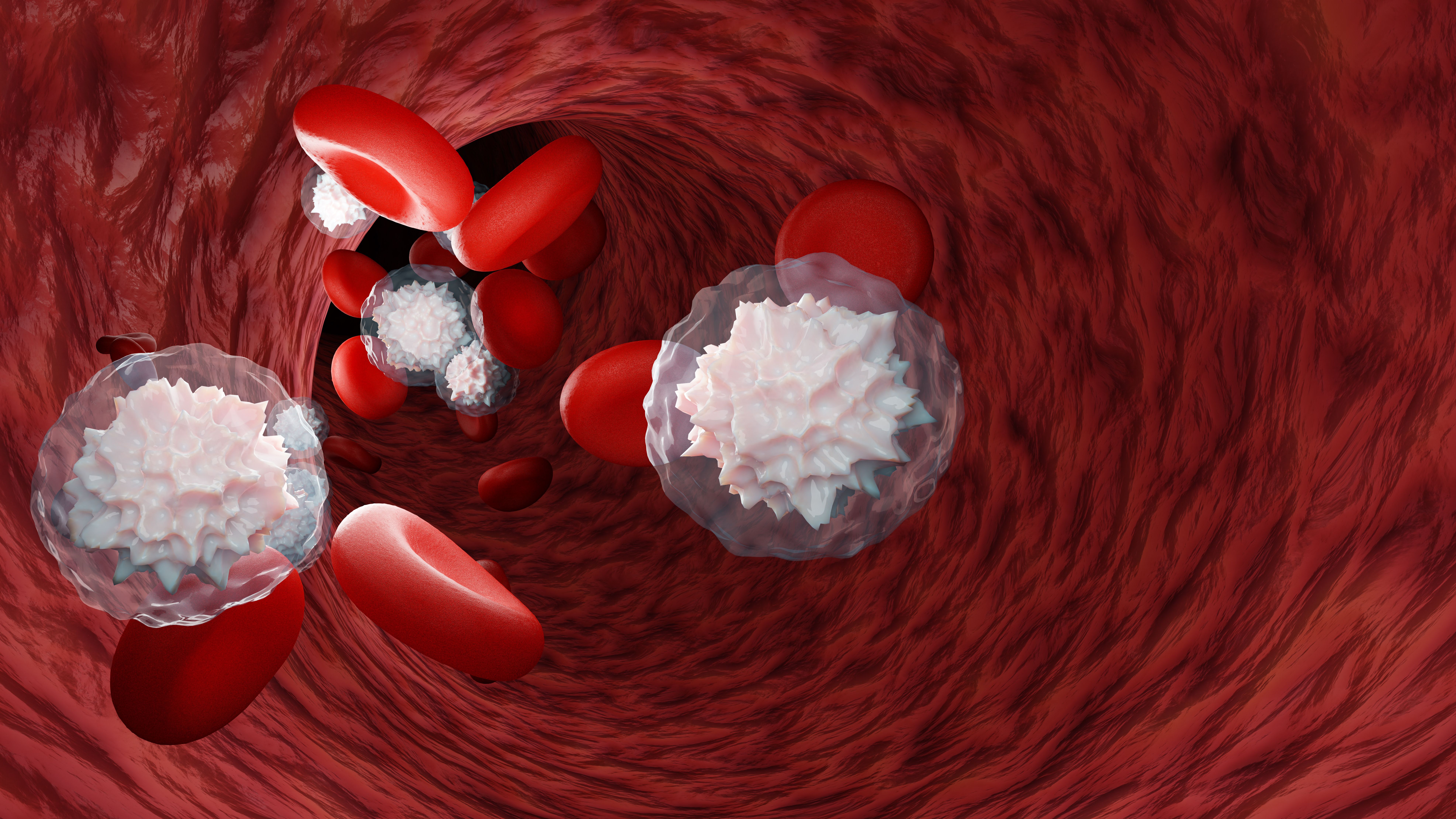IO-202 Receives FDA Orphan Drug Designation in CMML
An orphan drug designation has been granted by the FDA for IO-202 as a treatment option for patients with chronic myelomonocytic leukemia.
- IO-202 was granted an FDA orphan drug designation for treating chronic myelomonocytic leukemia (CMML), addressing an unmet need.
- The agent is a first-in-class, humanized IgG1 antibody that binds to leukocyte immunoglobulin-like receptor subfamily B4 (LILRB4), showing promise in relapsed/refractory CMML and acute myeloid leukemia (AML).
- IO-202 demonstrated safety and efficacy, with notable responses including complete remission (CR) in AML and clinical benefits in CMML, supporting advancement to dose-expansion phase.

IO-202 has been granted an orphan drug designation from the FDA for the treatment of patients with CMML, according to Immune-Onc Therapeutics, Inc.1
“Although current therapeutic options for CMML can improve a patient’s quality of life, there is a high unmet need for effective disease-modifying approaches that are potentially curative,” said Charlene Liao PhD, chief executive officer and board chair of Immune-Onc, the manufacturer of IO-202, in a press release. “We are very proud that the FDA has granted IO-202 orphan drug designation for the treatment of [patients with] CMML. We look forward to continued collaborations with our investigators and the FDA as we work to bring this potentially important therapy to patients with hard-to-treat blood cancers.”
IO-202 is a first-in-class, humanized IgG1 antibody. The agent has high-affinity binding to LILRB4 and in 2023, received an FDA fast track designation for the treatment of patients with relapsed/refractory CMML. The FDA also granted the agent a fast track designation in February 2022 in relapsed/refractory AML, and an orphan drug designation for the same indication in 2020.
A multicenter, open-label phase 1 study (NCT04372433) is currently ongoing to evaluate IO-202 alone and combined with azacitidine (Vidaza) with or without venetoclax (Venclexta) for the treatment of patients with relapsed/refractory AML with monocytic differentiation or CMML.
Leukemia Image -stock.adobe.com

Enrollment in the study is open to patients aged 18 years and older with adequate hepatic and renal function, an ECOG performance status of 2 or lower, and those who have not received systemic calcineurin inhibitors for at least 4 weeks prior to study treatment.2 Once enrolled, patients in the dose-escalation portion are being treated with IO-202 via intravenous infusion given at dose levels ranging from 0.03 mg/kg to 60 mg/kg on days 1 and 15 of each 28-day cycle.3 In addition, patients were given azacitidine at 75 mg/m2 on days 1 through 7 of each cycle.
Investigators are assessing the primary end points of safety and tolerability and the secondary end points of pharmacokinetics, response rates, and incidence of antidrug antibodies against IO-202.2
At the 2023 European Hematology Association congress, results from the dose-escalation portion of the study were presented, highlighting data on 26 patients with AML who received IO-202 alone and 10 patients given IO-202 plus azacitidine. Data from a cohort of patients with CMML who were treated with IO-202 monotherapy (n = 5) and IO-202 plus azacitidine (n = 5) also were presented.3
Finding showed that among patients included in the AML cohort of the phase 1 study, there was 1 patient in the IO-202 monotherapy arm treated at a dose of 9 mg/kg who reached a partial remission (PR). One patient who had high LILRB4 expression and was given IO-202 at 30 mg/kg plus azacitidine achieved a complete remission (CR) lasting longer than 10 months.
One patient in the CMML cohort who received IO-202 alone at a dose increasing from 0.1 mg/kg to 0.3 mg/kg had a clinical benefit which lasted longer than 1 year. Also in this arm, 1 patient had a PR at the 4.5 mg/kg dose, 1 patient had clinical benefit at the 9 mg/kg dose, and 1 patient experienced an optimal marrow response with a duration of over 3 months when treated at the 60 mg/kg dose.
Regarding safety, in the monotherapy arm of the study (n = 31), treatment-related adverse events included vomiting (n = 4), nausea (n = 3), and abdominal pain, chills, fatigue, infusion-related reactions, and headache in 2 patients each. However, no adverse events were reported among those given the combination therapy (n = 15). There were also no deaths associated with IO-202 administration, and no dose-limiting toxicities were observed with the maximum tolerated dose not reached.
Overall, study authors determined that IO-202, administered at a maximum dose of 60 mg/kg twice weekly, was safe and well-tolerated both as monotherapy and in combination with azacitidine, eliciting promising responses. Notably, a CR in a patient with AML and an optimal marrow response in a patient with CMML justified advancing IO-202 to the dose-expansion phase, focusing on AML patients with high LILRB4 expression levels.
REFERENCES
Immune-Onc Therapeutics announces orphan drug designation granted by US FDA for IO-202 (anti-LILRB4) for the treatment of chronic myelomonocytic leukemia (CMML). News release. Immune-Onc Therapeutics, Inc. February 21, 2024. Accessed February 23, 2024. http://tinyurl.com/57xeceza
IO-202 as monotherapy and IO-202 plus azacitidine ± venetoclax in patients in AML and CMML. ClinicalTrials.gov. Updated January 8, 2024. Accessed February 23, 2024. https://classic.clinicaltrials.gov/ct2/show/NCT04372433
DiNardo C, Pollyea D, Aribi A, et al. A first-in-human phase 1 study of IO-202 (anti-LILRB4 mAb) in acute myeloid leukemia with monocytic differentiation and chronic myelomonocytic leukemia. Presented at: 2023 European Hematology Association Congress; June 8-11, 2023; Frankfurt, Germany. Abstract P536.